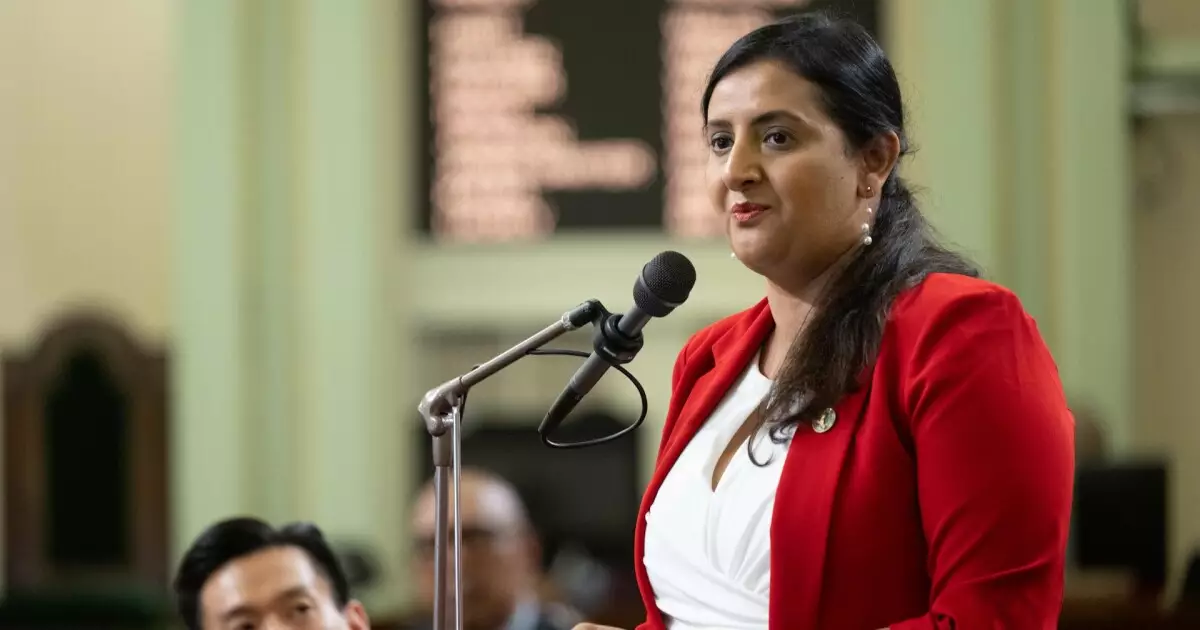In a bold yet controversial move, California Governor Gavin Newsom recently put pen to paper on a supplemental budget bill that earmarks an astonishing $2.8 billion towards Medi-Cal, the state’s Medicaid program. This expenditure is not just about healthcare; it represents a significant ideological clash over how taxpayer dollars should be allocated in a state with crippling financial challenges. By including undocumented immigrants in Medi-Cal coverage, the governor seems to be prioritizing a progressive agenda over fiscal responsibility. It raises the question: at what cost is California willing to expand its welfare programs?
Despite being framed as a necessary adjustment to cover rising healthcare costs, the expansion has drawn sharp criticism from Republican lawmakers who argue it amounts to a misallocation of resources. Assemblymember Carl DeMaio has been particularly vocal about this issue, emphasizing the unsustainable nature of providing “free” healthcare to individuals who do not have legal status in the country. With California already grappling with soaring debts and deficits, increasing funding for such welfare programs could set a dangerous precedent. Why is it that we, as taxpayers, must bear the weight of a system that evolves to accommodate those disregarding legal norms?
The Inconsistency of Healthcare Economics
Supporters of the Medi-Cal expansion cite the moral obligation to provide healthcare for all, regardless of immigration status. Assemblymember Jasmeet Bains, a medical professional, argued that without such provisions, undocumented immigrants would inevitably flood emergency rooms, leading to higher healthcare costs in the long run. However, this argument is flawed and does not consider the larger economic landscape. Ignoring the fiscal strain of such expansions could lead to unsustainable spending that ultimately harms the very citizens these health policies claim to protect.
For context, Medi-Cal’s budget has witnessed a staggering increase, nearly doubling in just six years to $42.1 billion. Critics suggest that including undocumented immigrants in this system significantly contributes to this inflation. Shouldn’t we, as a society, assess the practicality of such programs instead of simply extending them under the guise of compassion? You have to wonder if the wellbeing of California’s residents is genuinely the priority, or if this is merely a political maneuver.
The Political Divide: A Battle for Accountability
In this highly charged political climate, the chasm dividing Democratic and Republican lawmakers has never been more pronounced. While Democrats assert that ensuring healthcare access is a non-negotiable human right, Republicans contend that this ideology must reconcile with fiscal accountability. The debate has become a lightning rod for larger existential questions regarding the fate of California’s educational system, infrastructure, and public safety—all of which are jeopardized by fiscal mismanagement.
DeMaio’s recent request for an audit of the Medi-Cal program encapsulates the urgency of this debate; if spending has risen without clear accountability, how can we justify further expansions? The considerable increase in Medi-Cal’s budget without any coherent strategy raises suspicions about operational efficiency and financial oversight within the state’s healthcare system.
Furthermore, the insistence of some Democratic lawmakers to continue on this trajectory, regardless of rising costs, demonstrates a disregard for the economic realities many Californians face. With skyrocketing taxes and living expenses, it is critical to question whether the priorities of our legislative bodies align with the needs of their constituents.
Implications for Future Policy
The decisions made in Sacramento resonate far beyond the immediate fiscal year. As budgetary allocations are finalized for the upcoming fiscal years, the impacts of current spending will echo through sectors from education to public safety. If unchecked, policies like those enacted through Assembly Bill 100 may pave the way for further economic strain on a statewide level. Are we prepared to confront the ramifications of unrestricted welfare expansion, or are we clinging to a utopian vision that ignores the realities of fiscal conservatism?
As the state continues to grapple with challenges—including the consequences of recent wildfires, housing shortages, and educational deficiencies—the notion of sustainable governance comes to the forefront. California must navigate its road ahead with fiscal sobriety, or risk becoming synonymous with fiscal irresponsibility in an already precarious political landscape. It remains to be seen whether the governor and his peers will recognize the imperative for change or stubbornly cling to well-intentioned but ultimately flawed social welfare policies.


Leave a Reply